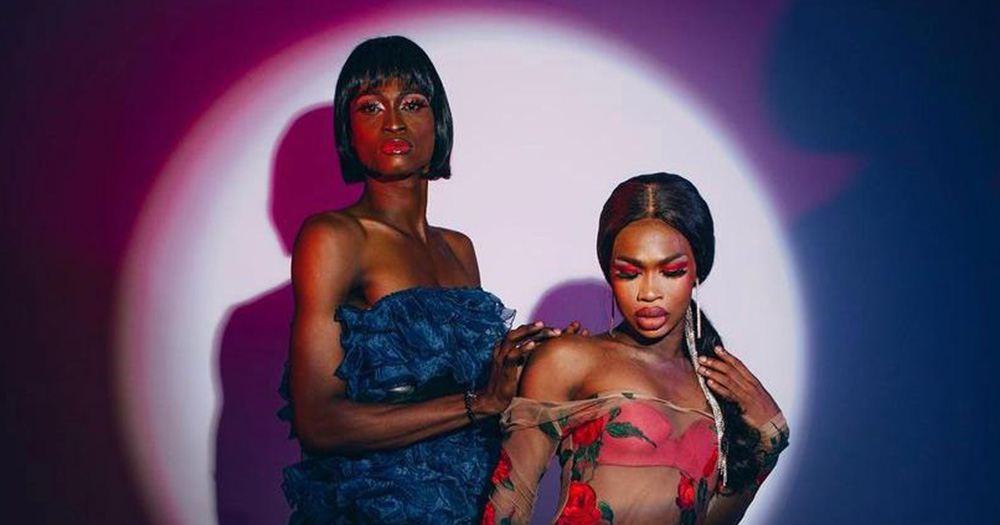Despite living in a nation with laws against the very existence of queer organisations, the LGBTQ+ community of Nigeria held a Pride festival in Lagos last week, touted as “the first of its kind in terms of reach, registrations, impact, and size.”
Events at the week-long celebration included art shows, a Pride village featuring local NGOs, a Pride ball, a drag competition, and panels on queer art and on Trans rights, with invitations required for some events.
https://twitter.com/martinsanumene/status/1539869203024547841
Organisers may have chosen to require invitations in order to keep the Pride celebrations safe spaces, since homophobic violence from both the state and average citizens is commonplace in Nigeria.
According to Pride Legal, sex, as well as anything “regarded by a reasonable person as an indecent act,” between two men is a criminal offense in Nigeria. Additionally, the Same-Sex Marriage (Prohibition) Act (SSMPA), codified into law in 2014, bans same-sex marriages with a penalty of up to 14 years in prison for violations, as well as banning public signs of same-sex romantic relationships and the act of witnessing or assisting in a same-sex marriage.
The SSMPA additionally prohibits “the registration of gay clubs, societies and organizations, their sustenance, processions and meetings,” and any support thereof. These offenses, other than engaging in a same-sex union, are punishable with up to 10 years in prison.
While no convictions have occurred to date (though a case was brought to court in 2018), the legislation seems to act as a green light for both the police and for the general population to attack those they perceive to be LGBTQ+, often concluding in lynching or murder.
The majority of people in the country do not accept those in the LGBTQ+ community, though this majority has lessened substantially in recent years according to a survey by The Initiative for Equal Rights. This may be due in part to the influence of modern technology and the internet providing mechanisms for LGBTQ+ people to become more visible and to feel more comfortable being vocal through finding support online.
However, this shrinking majority is still just that – a majority. Lawmakers do not appear at all inclined to repeal the SSMPA, according to Lagos-based lawyer Obinna Okoronkwo, and the violence hasn’t stopped.
Past protests and LGBTQ+ gatherings in Nigeria have demonstrated the danger that hosting such events openly can pose in the highly religious nation. Olaide Kayode Timileyin, the founder of a podcast about LGBTQ+ Nigerians called QueerCity Media, told Xtra about how the police raided their home after one event in 2019, forcing them to travel between friends’ houses for days. Also in 2019, an LGBTQ+ activist who organised a protest in what may have been Nigeria’s first-ever Pride event had to flee the country when their safety became compromised.
Nonetheless, celebrations of Pride are just as deeply desired and needed by LGBTQ+ Nigerians as they are by members of the community living anywhere else. Pride presents a time to be one’s authentic self, something highly valuable for those living in more intolerant states like Nigeria.
During most of the year, “You are constantly having to explain your existence,” Victor Emmanuel, a gay YouTuber from Nigeria, said to The Irish Times. He noted that he lives in fear, understandably so after having been brutally attacked last year. But in contrast to the normal day-to-day, he said, “Pride month means a month to celebrate my queerness.”
https://twitter.com/martinsanumene/status/1539698823248879617
Though other LGBTQ+ gatherings have happened in Nigeria in the past, they have occurred more quietly. Even so, events like 2019’s Bodies Around Olumo resulted in raids and searches for organisers.
Nonetheless, such experiences have provided organisers with important information that they have put to good use for this year’s larger and purposefully visible Pride events. The location of the celebration in Lagos was intentional. According to Timileyin, one of Pride in Lagos’ organisers as well as a podcast creator, residents of the large city are more tolerant than those of cities like Abeokuta, where Bodies Around Olumo took place.
“We definitely can’t say we are not expecting backlash, but we can say for sure that it won’t be a crackdown,” Timileyin said to Xtra. “Visibility for the community has increased exponentially since we first organized in 2019.”
In organising Pride in Lagos, Timileyin and other organisers actively wanted to increase the visibility of Nigeria’s LGBTQ+ community, to show others what life is like for queer Nigerians. They want to empower other LGBTQ+ communities beyond large cities like Lagos to organise their own Prides, so that queer people living in Africa can have somewhere to go, to find community, and to celebrate what makes them who they are.
https://twitter.com/OKTimileyin/status/1541333262483816448
© 2022 GCN (Gay Community News). All rights reserved.
Support GCN
GCN is a free, vital resource for Ireland’s LGBTQ+ community since 1988.
GCN is a trading name of National LGBT Federation CLG, a registered charity - Charity Number: 20034580.
GCN relies on the generous support of the community and allies to sustain the crucial work that we do. Producing GCN is costly, and, in an industry which has been hugely impacted by rising costs, we need your support to help sustain and grow this vital resource.
Supporting GCN for as little as €1.99 per month will help us continue our work as Ireland’s free, independent LGBTQ+ media.
